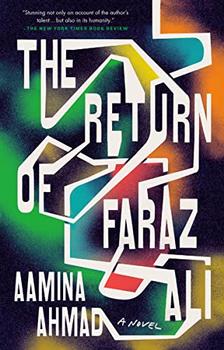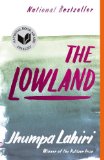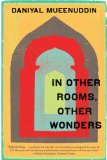Summary | Excerpt | Reading Guide | Reviews | Beyond the book | Read-Alikes | Genres & Themes | Author Bio

A Novel
by Aamina AhmadIn Aamina Ahmad's debut, The Return of Faraz Ali, the eponymous character is a police inspector in Lahore, Pakistan in 1968. As the book opens, he receives a call from an important politician saying there's been an "accident" in Shahi Mohalla, the red-light district of the city. The man states he knows Faraz is someone he can trust to ensure the "mess" is cleaned up "properly." Faraz, who's used to this kind of assignment, agrees, although he has a few qualms: The important politician is his father, Wajid; and Faraz hasn't set foot in Shahi Mohalla since he was five, when Wajid took him from his mother, a tawaif (sex worker). Faraz discovers the accident is in reality the brutal murder of a child who was being groomed to become a sex worker herself, and he finds he can't bring himself to follow Wajid's orders.
From the novel's description, readers would be forgiven for believing they're picking up a standard police procedural. But actually, there's a lot going on throughout this complex and engrossing narrative, with the criminal investigation being a minor facet when all's said and done. Much of the plot focuses on Faraz as he struggles to understand his place in a corrupt and often brutal society, and to define the type of person he wants to be. The other major plotline follows his older sister, Rozina, who rose from a common tawaif (see Beyond the Book) to famous actress, but is now past her prime and, like her brother, striving to define a path forward. Both characters are richly drawn; the loneliness of each is palpable, as is the longing they have for meaningful connections that always seem just out of reach. Each one's journey is heartbreaking and unforgettable. I was particularly intrigued by the women portrayed throughout the novel, most of whom are viewed with disdain by Pakistani society — throwaway people who nevertheless find a way to survive. A tertiary plotline is set 25 years earlier, during World War II, as Walid is incarcerated in a prisoner-of-war camp; these sections serve to illuminate Walid's character and explain his relationship with his son (it is unusual that a client would care about the well-being of the child he had with a sex worker).
In addition to intriguing characters, Ahmad brilliantly illustrates the time and place in which the action occurs. The novel opens with the 1968 riots opposing the dictatorial regime of President Ayub Khan, and later, focuses on the 1971 Bangladesh Liberation War which saw East Pakistan separate to become a sovereign nation. There's an undercurrent of political discord that seeps through every page of the book, imbuing the plot with an added level of tension. Lahore's gritty atmosphere is vividly described, really bringing the scenes to life.
This remarkable debut has a lot of depth, but the downside is that it's not a quick read. I didn't feel like it dragged or was a slog in any way, but it also didn't have much forward momentum, its overwhelming emphasis being on character development.
I can imagine The Return of Faraz Ali receiving mixed reviews, because those who pick it up expecting a detective novel will likely be disappointed. Readers searching for a truly excellent work of literary fiction, though, will almost certainly enjoy the author's nuanced portrayal of her abundantly flawed characters, as well as her powerful depiction of time and place. Although it requires a certain amount of patience, it's one of the best debuts I've come across in a long time, and I highly recommend it.
![]() This review was originally published in The BookBrowse Review in May 2022, and has been updated for the
April 2023 edition.
Click here to go to this issue.
This review was originally published in The BookBrowse Review in May 2022, and has been updated for the
April 2023 edition.
Click here to go to this issue.

If you liked The Return of Faraz Ali, try these:

by Jhumpa Lahiri
Published 2014
Epic in its canvas and intimate in its portrayal of lives undone and forged anew, The Lowland is a deeply felt novel of family ties that entangle and fray in ways unforeseen and unrevealed, of ties that ineluctably define who we are

by Daniyal Mueenuddin
Published 2010
A major literary debut that explores class, culture, power, and desire among the ruling and servant classes of Pakistan.
Your guide toexceptional books
BookBrowse seeks out and recommends the best in contemporary fiction and nonfiction—books that not only engage and entertain but also deepen our understanding of ourselves and the world around us.